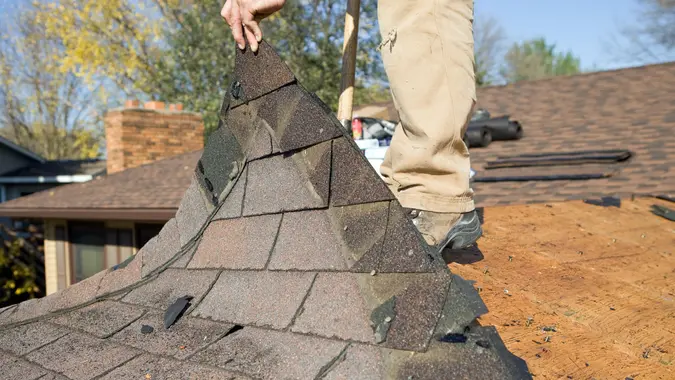Q&A: My Mortgage Loan Is Severely Underwater — What Should I Do?

Commitment to Our Readers
GOBankingRates' editorial team is committed to bringing you unbiased reviews and information. We use data-driven methodologies to evaluate financial products and services - our reviews and ratings are not influenced by advertisers. You can read more about our editorial guidelines and our products and services review methodology.

20 Years
Helping You Live Richer

Reviewed
by Experts

Trusted by
Millions of Readers

Q: Since 2008, I’ve owed more money on my mortgage loan than my house is actually worth. While I can afford the mortgage payments, I’ve heard this is a poor investment and I should just get rid of the property. I don’t like the idea of giving up my home, but I also don’t want to be throwing money away — what should I do?
A: The problem you’re dealing with is called an underwater mortgage, which means the principal balance on your home loan is larger than the value of the property being financed. Millions of homeowners found themselves with underwater mortgages after the financial crisis, when the homes they had purchased at a premium suddenly plummeted in value.
Below are a few of your options for handling an underwater mortgage.
Underwater Mortgage Options
1. Refinance: While this option will not make your mortgage any less underwater, refinancing to a lower rate or shorter loan term will at least cut the total amount you pay in interest. It’s not easy to qualify for refinancing when underwater, but there are some programs available.
2. Short Sale: A short sale involves selling your home for whatever price you can get, while your lender agrees to forgive whatever balance is left over on your loan. Your lender must approve a short sale, which if they do, would allow you to get rid of the underwater property and loan.
3. Walk Away: Walking away from a mortgage is something I wouldn’t condone, but it is an option. What does it mean to walk away? You stop paying your mortgage, let your home go into foreclosure and move on. Keep in mind there are serious consequences for taking this route, though some experts recommend it if your mortgage is underwater by enough.
4. Do Nothing: If we learned anything from the housing bubble burst, it’s that homes aren’t really investments — they’re places to live. As soon as you start thinking about your home in terms of an investment that should generate a return, rather than just a home, plain and simple, you get into trouble.
If you can afford your mortgage payments, consider whether you really want to give up your home and thousands of wasted dollars because its value has fallen below what you owe. Also, remember that mortgage loans tend to span several decades, and it’s very likely your home’s value will reach what it used to be — or hopefully, higher — by the time it’s paid off.
 Written by
Written by 

























